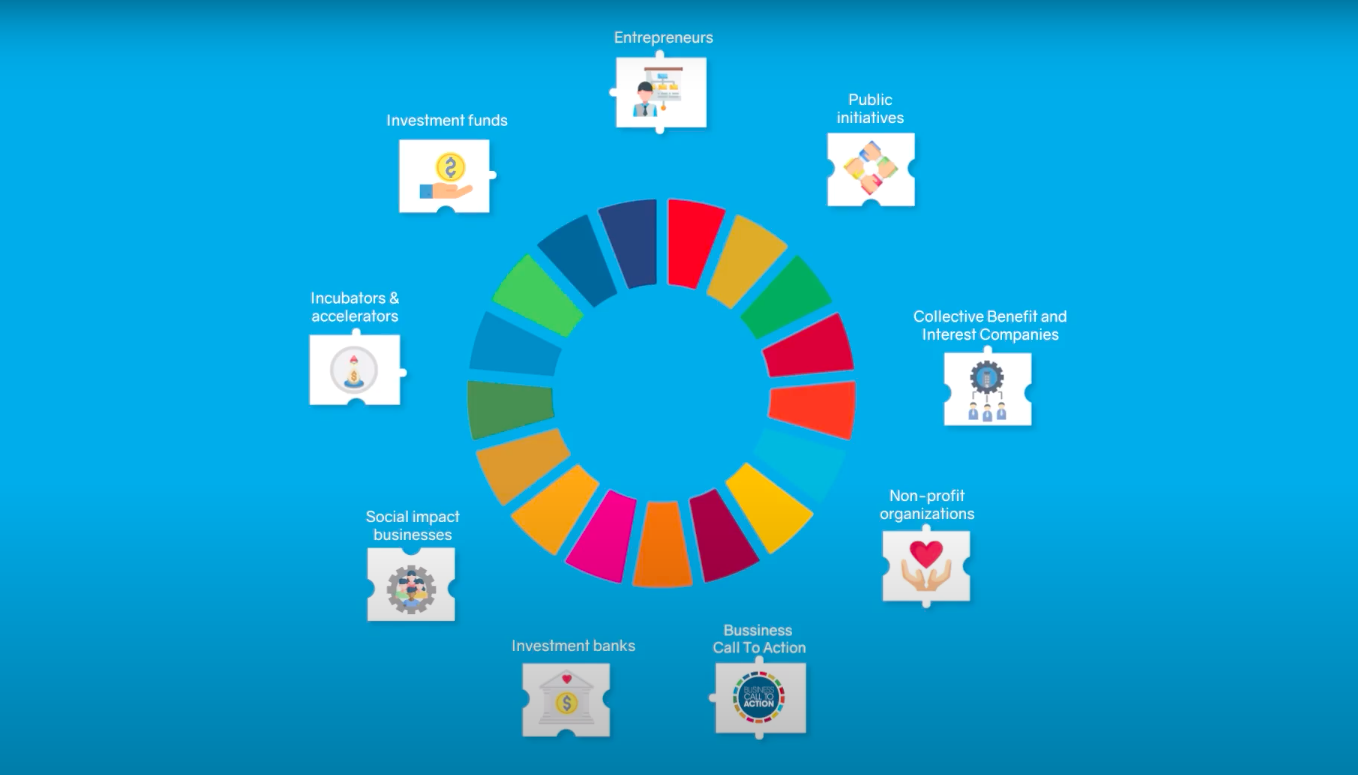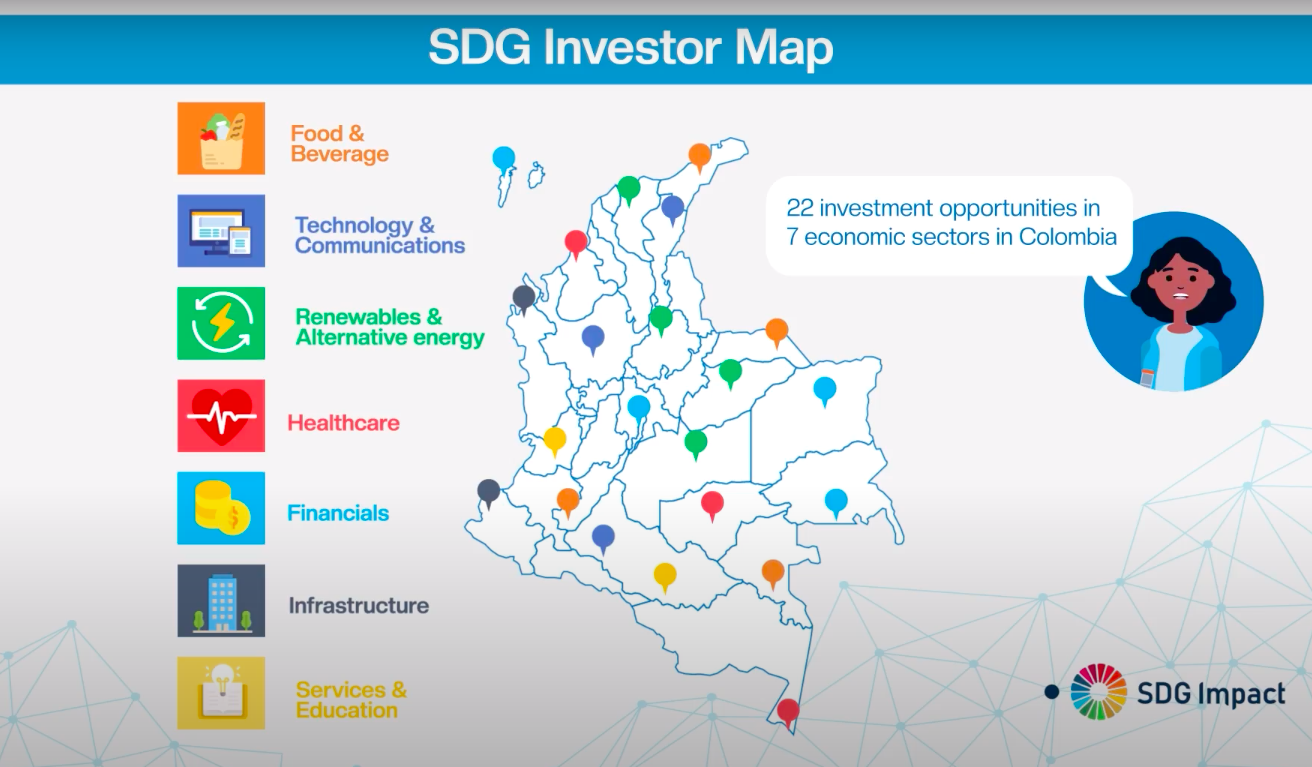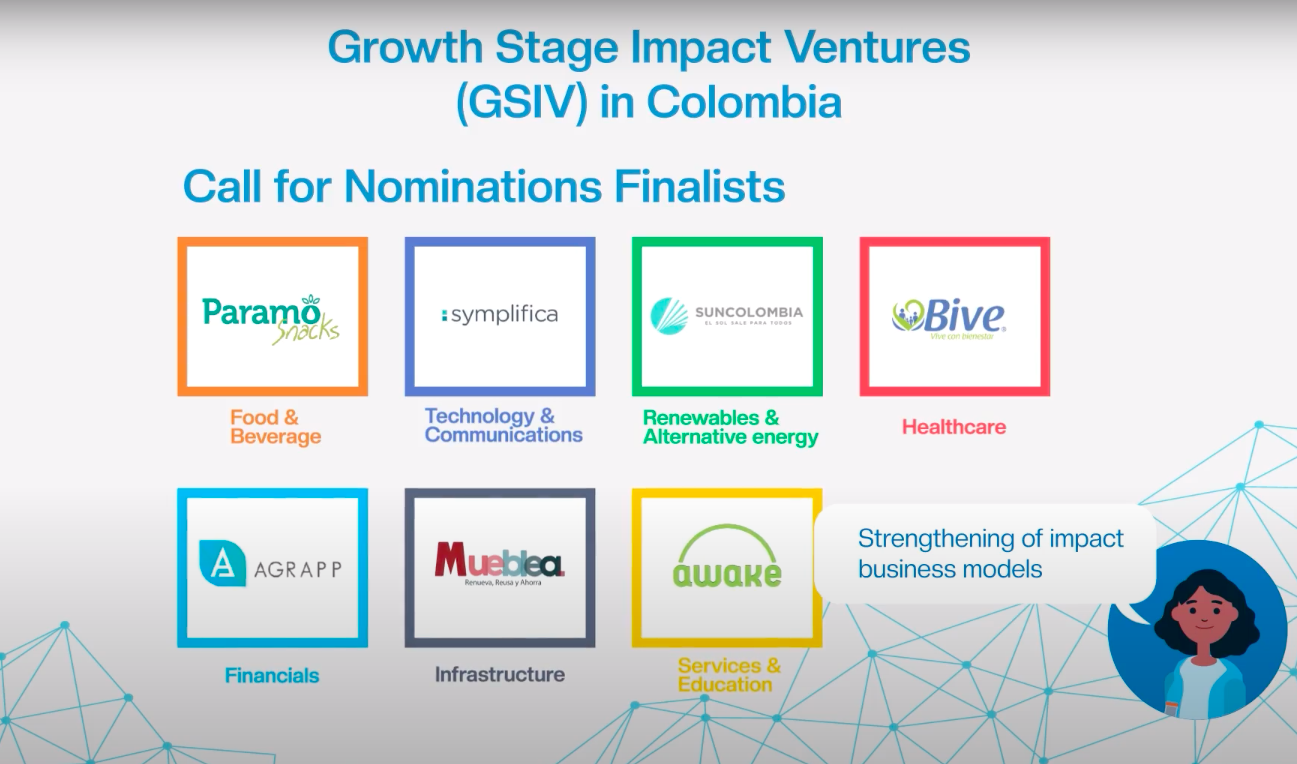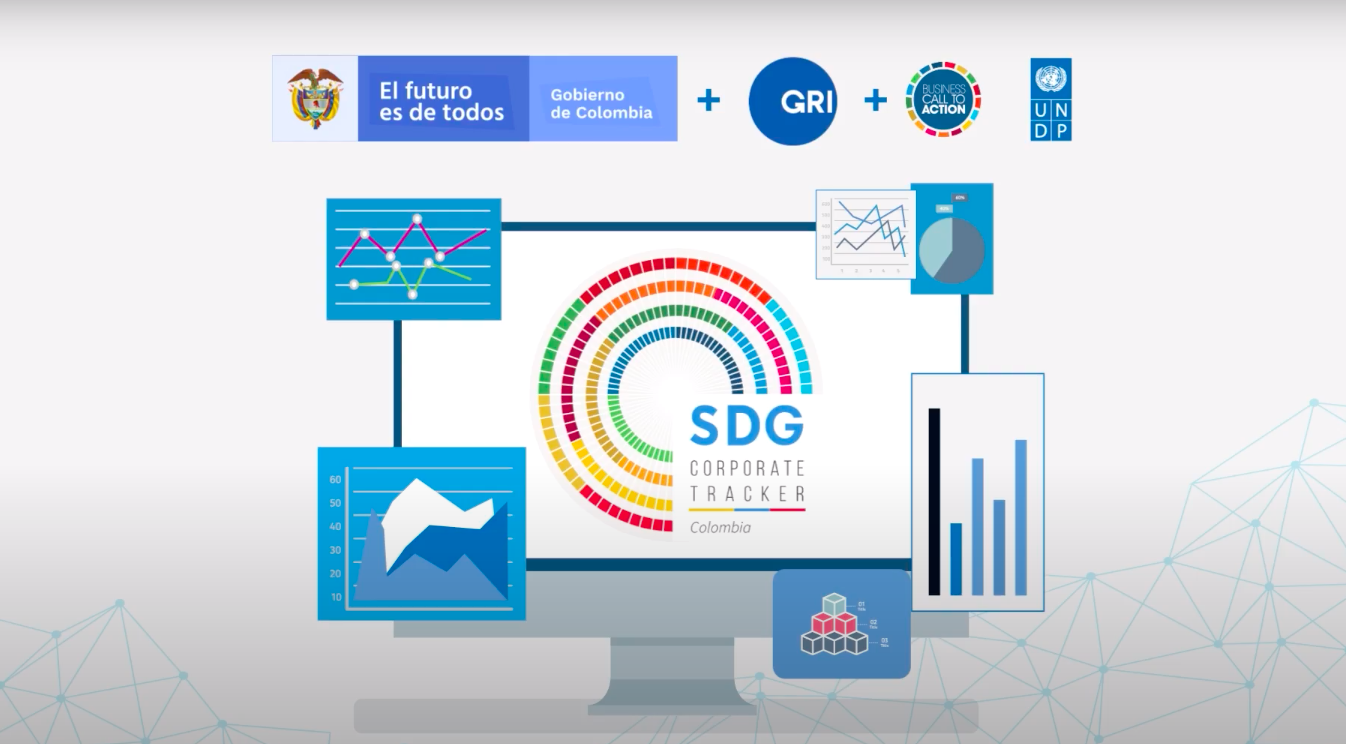By: Integrated National Financing Frameworks in Colombia (INFF Colombia).
The 2030 Agenda and the SDGs lay out the roadmap to end poverty, protect the planet, and improve the lives of everyone. However, one of the main challenges is to mobilize additional resources for the SDGs.
In 2014, while the SDGs were being developed, the United Nations Conference on Trade and Development (UNCTAD) estimated a USD 2.5 trillion annual gap in developing countries to achieve the 2030 Agenda[i]. This amount recently grew by US$1.7 trillion because of the COVID-19 pandemic[ii].
Given this picture, financing the SDGs requires the alignment of all sectors and decision makers. Therefore, the United Nations is supporting the efforts of 69 developing countries to identify various funding sources for achieving the 2030 Agenda through the Integrated National Financing Frameworks (INFF), proposed by the Addis Ababa Action Agenda in 2015.
In Colombia, one of INFF’s purposes is to facilitate the alignment of the private sector to the SDGs, along with the other two traditional pillars of SDG financing, namely public sector, and development cooperation. This alignment represents great opportunities for the world, as the achievement of the 2030 Agenda is estimated to create more than 380 million jobs and US$12 trillion in business opportunities[iii].
As a first step in the development of Integrated National Financing Frameworks around the world, the United Nations Development Programme (UNDP) launched the SDG Impact initiative in 2018. This initiative seeks to create an ecosystem of private investment, focused on redirecting private funds towards the SDGs and the 2030 Agenda. The SDG Impact is based on three pillars:
- Impact Management focuses on improving private management standards and procedures to encourage strategic decision-making processes towards the acceleration of the 2030 Agenda and the SDGs, following international standards of SDG impact evaluation.
- Impact Intelligence seeks to produce enough information, at the national level, about investment opportunities aligned with the SDGs. This component intends to close the gap between private investors, looking for opportunities, and feasible projects with the potential to accelerate the SDGs.
- Impact Facilitation aims to merge the experience of the United Nations and UNDP working with private investment networks and public institutions to encourage coordinated efforts between stakeholders from the public and private sectors.
To implement an Integrated National Financing Framework (INFF) and bring the SDG Impact initiative to Colombia, UNDP and the Colombian Government have developed and implemented two tools to align the private sector with SDG financing frameworks: the SDG Investors Map and SDG Corporate Tracker.
SDG Investor Map for Colombia
Within the framework of the Impact Intelligence component, UNDP Colombia launched the SDG Investor Map for Colombia in 2018, identifying 22 investment opportunities within seven priority sectors. The results of the SDG Investor Map are in a validation process with the Colombian government and potential investors. Among the identified investment opportunities, ICTs for agriculture, healthcare and education can be highlighted.
In addition, the SDG Investor Map is expected to be strengthened in the future, with an additional area focused on closing gender gaps.
Table 1 shows the 22 investment opportunities pinpointed by the SDG Investor Map.
Table 1. SDG Investor Map
Priority Sectors |
Priority Subsectors |
Investment Opportunity Areas for Colombia |
Food & Beverage |
Agricultural Products |
Big Data and precision technologies |
NTFB products value chains |
||
Processed Foods |
Plant-based food alternatives |
|
Blockchain food traceability |
||
Technology & Communications |
Internet Media & Services |
Rural area internet connectivity |
Software & IT Services |
Digitalization of merchant’s transactions |
|
Workforce connectivity platforms |
||
Formalization of the gig-economy |
||
Land tenure traceability technology |
||
Renewables and alternative energy |
Solar Technology |
Biomass generated energy |
Renewable infrastructure developer |
||
| Off-grid energy distribution | ||
Healthcare |
Healthcare delivery |
Telemedicine and online prevention |
Electronic medical records |
||
Financials |
Consumer Finance |
Alternate information SME microfinance |
Insurance |
Microinsurance models |
|
Infrastructure |
Waste management |
RCD recycling model |
Water Utilities & Services |
Industrial wastewater treatment |
|
Transportation |
Efficient cargo delivery |
|
Services & Education |
Educational infrastructure |
Hybrid educational services |
Hotels & Lodging |
Ecology and ecotourism models |
|
Education technology |
Vocational online learning platforms |
The Growth Stage Impact Ventures (GSIV) programme in Colombia
Based on the Colombia SDG Investor Map, UNDP Colombia launched the Colombia Growth Stage Impact Ventures (GSIV) programme in July 2021. The ultimate objective of the programme is to strengthen the development of the private sector in Colombia by identifying and aggregating a pool of investment-ready businesses [LP-1] from the economic sectors identified by the Colombia SDG Investor Map. A pipeline of impactful and investable ventures can reduce pre-investment costs for investors, contributing to close the SMEs’ lack of finance and hence contribute to the mobilization and alignment of SDG finance in developing countries.
The call received over 90 nominations from 61 different third-party nominators. Nearly one-third of the nominators who participated in the call were investors (predominantly impact funds), confirming the strong interest from the Colombian private sector in seeking recognition and visibility of their partner investees as well as the value seen in building a local impact ecosystem through collaboration with UNDP.
From the nominations received, 7 companies were selected as finalists of the call, each of them belonging to a prioritized sector by the SDG Investor Map: Paramo Snacks (food and beverages), Agrapp (financials), SunColombia (renewables and alternative energies), Mueblea (infrastructure), Bive (healthcare), Symplifica (technology and communications), Awake (services and education).
SDG Corporate Tracker
Additionally, the Government of Colombia, with technical support from UNDP and the Global Reporting Initiative (GRI), has been a pioneer with the design and implementation of the SDG Corporate Tracker, as a tool for monitoring the contribution of the private sector to the SDGs. The SDG Corporate Tracker is a multi-stakeholder initiative aimed at the entire business community operating in Colombia, regardless of economic activity, company size, or whether the company is local or transnational.
The SDG Corporate Tracker has three main objectives:
- To collect relevant data regarding the contribution of companies operating in Colombia to the 17 SDGs, using online tools and international standards suggested by GRI.
- To analyze and publish information and knowledge on sustainable corporate practices, enabling other companies to replicate and adopt best practices.
- To publish reports with aggregated information by economic sector, and company size, as an input to strengthen policy-making discussions focused on development and decision-making processes regarding impact investments.
The contribution from the private sector to the 17 SDGs is measured using 86 targets, identified as strategic for the private sector. The SDG Corporate Tracker has 300 questions divided into three different sections, corresponding to the three dimensions of sustainable development: economic, environmental, and social dimensions. It is important to note that companies do not have to respond all the questionnaire. Each company can answer the questions related to their materiality or depending on the information availability.
To guide companies while reporting through the platform, each question has its guideline, defining its scope and GRI standard. This allows companies to get a better knowledge about GRI standards for future adoption (in case they do not use GRI standards) or enhancing their use (In case they have experience using GRI Standards). In addition, the SDG Corporate Tracker has a fourth section related to the assessment of the impact of COVID-19 and mitigation programs implemented by the companies.
The information gathered by the SDG Corporate Tracker will be strategic for both: the central administration and the private sector. For the Colombian government, having complete information about the contribution of the private sector to the SDGs will be a fundamental step towards having the big picture about the progress made by Colombia regarding the SDGs and the 2030 Agenda. On the other hand, companies can use this tool to monitor their impact investments and track their contribution to the SDGs, adopting GRI's international standards.
However, there are still information gaps, and therefore UNDP and Colombia's National Planning Department are working together on two fronts in order to improve the platform. First, it is important to adjust the database and extract representative statistical data to create more comprehensive reports. Second, a strategy to encourage more companies to participate is being designed, which includes some modifications to the questionnaire seeking to have a more friendly platform for the final user, and improving the feedback received by companies when filling the report.
In conclusion, the private sector is a critical stakeholder for achieving the SDGs and filling current financial gaps. The best way to encourage private investors to get involved with the development agenda is to create tools to empower them with innovative ideas and profitable investment opportunities aligned with the SDGs. The SDG Investor Map and the SDG Corporate Tracker were designed and created to be those tools.
The SDG Investor Map solves information gaps and provides a roadmap for entrepreneurs to invest in profitable and sustainable projects. The SDG Corporate Tacker allows companies to keep track of their impact investments and gives valuable information for policy-makers, looking for encouraging more participation from the private sector. Leveraging these tools, the Joint Programme will continue working on encouraging the mobilization of private investment towards the SDGs.
______________
[i] UNCTAD (2014). Investing in the SDGs: an action plan. Disponible en: https://unctad.org/system/files/official-document/wir2014_en.pdf
[ii] OECD (2020), Global Outlook on Financing for Sustainable Development 2021: A New Way to Invest for People and Planet, OECD Publishing, Paris, https://doi.org/10.1787/e3c30a9a-en.
[iii] Business and Sustainable Development Comission (2017). Better business better world. The report of the Business & Sustainable Development Commission. Disponible en: https://d306pr3pise04h.cloudfront.net/docs/news_events%2F9.3%2Fbetter-business-better-world.pdf

 Locations
Locations





